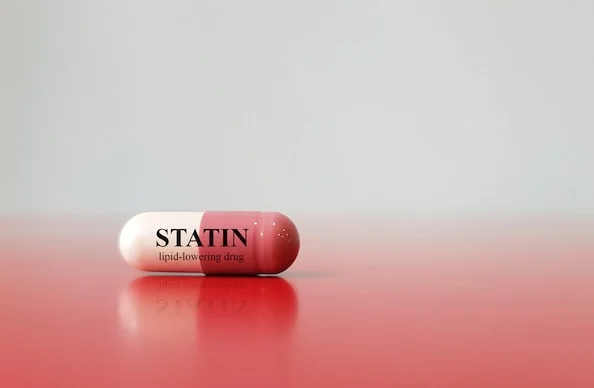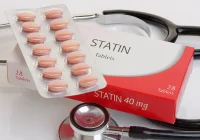A new study conducted by researchers from the Mass General Cancer Center shows that statins—commonly used cholesterol-lowering drugs—may inhibit a specific pathway in cancer development caused by chronic inflammation. The findings are published in Nature Communications.
Chronic inflammation is a major cause of cancer worldwide. In this study, the researchers investigated the mechanism by which environmental toxins drive the initiation of cancer-prone chronic inflammation in the skin and pancreas. They also explored safe and effective therapies to block this pathway to suppress chronic inflammation and its cancer aftermath.
Researchers conducted their study using cell lines, animal models, human tissue samples, and epidemiological data. Their cell-based experiments demonstrated that environmental toxins (exposure to allergens and chemical irritants) activate two connected signalling pathways, TLR3/4 and TBK1-IRF3. This activation leads to the production of the interleukin-33 (IL-33) protein, which stimulates inflammation in the skin and pancreas, potentially contributing to cancer development.
Screening a library of U.S. Food and Drug Administration-approved drugs, the researchers discovered that the statin pitavastatin effectively suppresses IL-33 expression by blocking the activation of the TBK1-IRF3 signalling pathway. In mice, pitavastatin reduced environmentally-induced inflammation in the skin and pancreas and prevented the development of inflammation-related pancreatic cancers.
IL-33 was over-expressed in samples from patients with chronic pancreatitis (inflammation) and pancreatic cancer compared to normal pancreatic tissue in human pancreas tissue samples. Additionally, analyses of electronic health records data from over 200 million people across North America and Europe showed that pitavastatin use was associated with a significantly reduced risk of chronic pancreatitis and pancreatic cancer.
The findings indicate that blocking IL-33 production with pitavastatin may be a safe and effective strategy to prevent chronic inflammation and the subsequent development of certain cancers.
The researchers aim to further examine the impact of statins in preventing cancer development associated with chronic inflammation in the liver and gastrointestinal tract and to identify other novel therapeutic approaches to suppress cancer-prone chronic inflammation.
Source: Massachusetts General Hospital
Image Credit: iStock







